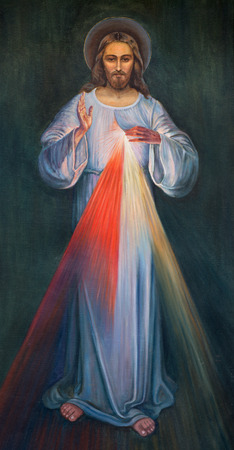 The Gospel passage selected for Thanksgiving Day, 2016 was the story of the ten lepers that Jesus cleansed: “Now one of them,when he saw that he had been healed, turned back, glorifying God with a loud voice, and he fell on his face at His feet, giving thanks to Him. And he was a Samaritan. Then Jesus answered and said, ‘Were there not ten cleansed? But the nine—where are they? Was no one found who returned to give glory to God, except this foreigner?’ And He said to him, ‘Stand up and go; your faith has made you well.’”
The Gospel passage selected for Thanksgiving Day, 2016 was the story of the ten lepers that Jesus cleansed: “Now one of them,when he saw that he had been healed, turned back, glorifying God with a loud voice, and he fell on his face at His feet, giving thanks to Him. And he was a Samaritan. Then Jesus answered and said, ‘Were there not ten cleansed? But the nine—where are they? Was no one found who returned to give glory to God, except this foreigner?’ And He said to him, ‘Stand up and go; your faith has made you well.’”
As I listened to the priest reciting those words, I realized that there were fewer than 200 people at the Mass (the only one offered that day) in a congregation of several thousand.
The thought not only remained in my mind throughout the day. It prompted me to reflect more deeply on the meaning of the Gospel passage.
Only one out of ten gave thanks then; far fewer, it seems, do so today, despite the fact that we are more blessed and thus have more to be thankful for than any people in human history.
Some will say our neglect is understandable because life today is more hectic than ever. On Thanksgiving and other special days, in particular, the food has to be cooked, the house put in order, and so on. Besides, they will say, everyone gives thanks before the meal and no doubt many think thankful thoughts throughout the day, so that should be enough.
That line of thought could be applied, as well, to the other nine lepers. We could say, “They may have thanked Jesus in their hearts and minds, but just didn’t go back to thank Him in person.” Yet that rings hollow.
Thinking thankful thoughts is not nearly the same as thanking the person, a fact that Jesus underlined when He said, “Your faith has made you well.” He was clearly not referring to the physical cure from leprosy—the other nine also received that. He was referring instead to the deeper spiritual cure He was giving the leper who returned to thank Him.
We cannot thank Jesus face to face as the leper did, but we can attend Mass and receive Him in the Eucharist. We can also thank Him by thanking the people through whom His blessings were bestowed on us. (Matt 25:40)
First among those people are the ones God has commanded us to honor, our parents. Then there are our other family members, neighbors, teachers, priests and nuns, and all others who deserve our appreciation. Some of them may live far from us, but in this advanced technological age, distance is no impediment. We have ways of reaching out across hundreds or thousands of miles. It takes only minutes to text, email, or phone someone.
The message can be as simple as “I want you to know you are in my thoughts as I celebrate this holiday. I also want to thank you for having been a blessing in my life.” (That can be sincerely said even to people who have not always been a blessing to us.)
Such an expression gives consolation to the person receiving it, especially if he or she is elderly and living alone or in a medical facility. It can also bring healing to a troubled relationship. Even more important, it is pleasing to God.
The wonderful thing about this way of giving thanks for our blessings is that it need not be confined to Thanksgiving Day. We can do it any day in any season.
Copyright © 2016 by Vincent Ryan Ruggiero. All rights reserved



